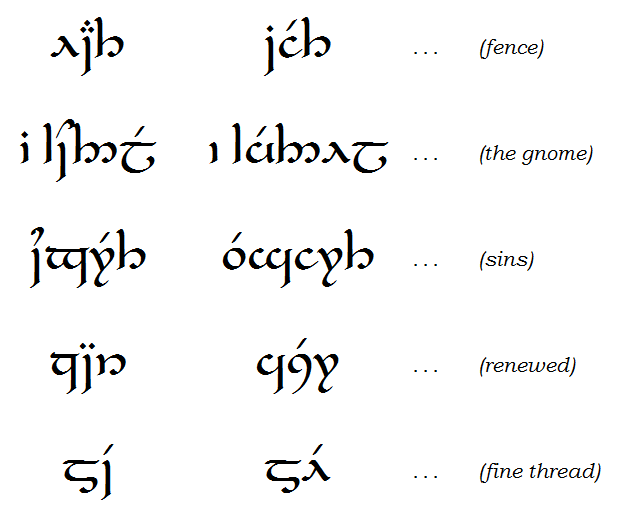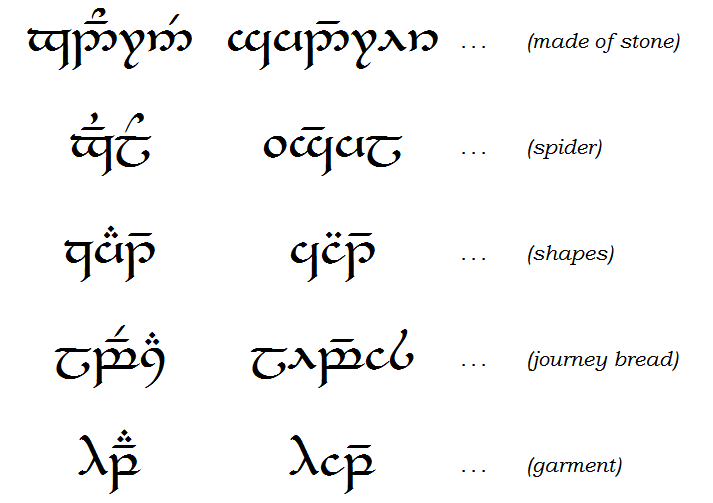Lessons synonyms, lessons pronunciation, lessons translation, English dictionary definition of lessons. Something to be learned; a class; a teaching: The lesson is to look before you leap. Capturing lessons learned is not an activity limited to project closeout.It is a vital action that project teams should continually perform throughout a project's life cycle, using it to identify and implement improvements. This paper examines the three levels involved in capturing lessons learned. In doing so, it explains the significance of capturing and communicating the lessons. Sindarin lessons Sindarin is one of the two best known Elvish languages created by J.R.R Tolkien. This course contains the vocabulary that belongs with an online Sindarin course. All the translation credits go to the creator of that site. I very highly recommend that person's course, he/she wrote a book containing the known grammar.
Beta Version
This is a bare-bones set of lessons meant to give you the general idea of my approach to Sindarin. If you want to get in depth, read my book, 'A Fan's Guide to Neo-Sindarin.' If you want a deeper approach still, take the lessons that involve me correcting and commenting on your translations, which costs money because it takes up a LOT of my time and energy. But, if you just want a surface glimpse of Sindarin, this course is for you.
*Asterisks are used to mark fanmade words, but fan-made grammar isn't marked.
The dialect I'll use throughout the lessons is the Exilic dialect, because it's the best attested dialect.

Learn Sindarin Elvish

Sindarin Lessons Weebly
We won't be covering in these lessons how to make your own words either, that's an advanced skill and again, it's covered in the book and advanced students will get to learn it.
- Politeness - covers what formal and informal mean in Sindarin, and when to use which.
- Prestanneth - covers the what and why of mutation
- 'The' + Noun - covers the use of 'the' and Vocalic/Soft Mutation
- Plural Nouns - covers I-affection and simple plurals
- 'The' + Plural Nouns - covers the use of plural 'the' and Nasal mutation
- Aorist Tense - covers A-verbs and I-verbs and pronominal suffixes, and transitive/intransitive verb syntax.
- The Noun with an Adjective - covers adjective syntax, lenition, number agreement, possessive pronouns, demonstrative adjectives, and interrogative adjectives
- The Noun with 'Of' - covers genitive syntax, 'of the', Mixed mutation
- The Copula - covers 'to be' sentences and nominative pronouns
- Helping Verbs - covers *ce and *law and how they fit into the syntax.
- The Noun with Conjunctions - covers 'and', 'or', 'but' and Liquid Mutation.
- Imperative Verbs - covers how to make verbs imperative and how to use them.
- Class Plural -ath for Nouns - covers making the ends of the words intervocalic, vowel reduction, and the meaning of -ath.
- Past Tense A-verbs - covers A-verbs in their past tense conjugations
- Nouns with Adjective Phrases - covers how to form adjective phrases, adverbs, and how to attach them to nouns.
- Past Tense TA-verbs and I-verbs - covers how to conjugate verbs into the past tense when the verb root ends in a consonant.
- Stop Past Tense TA-verbs and I-verbs - covers how to make the past tense with verb roots ending in B, D, and G.
- Definite Prepositions - covers how they use mixed mutation, and when plural, nasal mutation
- Gerunds - covers how to make gerunds and how they works with their objects.
- The Noun with Numbers - covers the numbers and how they are used with nouns.
- Indirect Objects - covers the dative case with an, long mixed Mutation and dative pronouns.
- Impersonal Verbs - lists the known impersonal verbs and how to use them.
- Vowel Reduction with Prefixes - covers how to do vowel reduction with a prefix instead of a suffix
- Compound Predicates - covers verbs that take verbs as their objects.
- Future Tense - covers ava-, tol-, nidh- and -atha
- Negation - covers the 4 negation roots.
- Indefinite and Reflexive Pronouns - covers these pronouns and how they are used with verbs.
- Past Participle and Passive Voice - covers how to form the past participle and how to use it.
- Present Participle - covers how form it and its uses.
- Perfect Participle - covers how to form it and its uses.
- Writing Dates - covers the months, seasons, weekdays, and how to write a date with them.
- Adverbs and Adverbal Prefixes - covers where adverbal information fits into transitive verb syntax and lists adverb prefixes
- Prepositional Phrases - covers how prepositional phrase fit into noun phrases and verb phrases
- Questions - covers how to ask a yes/no question and how to answer it.
- WH-Words - covers some useful words for asking questions.
- Quotations - covers how quotes are inserted into sentences.
- Subordinate Clauses - covers how to make a subordinate clause
- Relative Clauses - covers how to form a relative clause and how to attach it to a noun or pronoun.
- Conditional Phrases - covers how to use *pi and *cí in conditional phrases.
- Nouns with Diminutive Suffixes - covers the diminutive suffixes, what they mean, and how to use them.
About Editing
The broad-strokes editing is done! Now we're on the style/clarity/prose level of editing. This is the time for suggesting more illustrative examples, for making the sure the prose is easily readable and clear enough to get the information accross. It's not the time for spotting typos and spelling errors - those are for the last stage, and it's not time for broad, sweeping changes to the structure and grammar taught in the lessons - that was the previous stage. If you have any such suggestions, get back to the Realelvish contact page and send Dreamingfifi a message. If you're on the Vinyë Lambengolmor Discord group you can suggest your changes there too.


